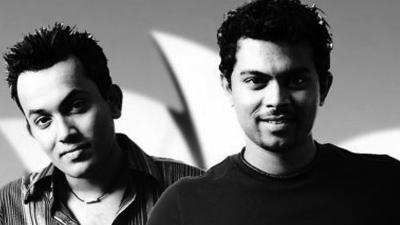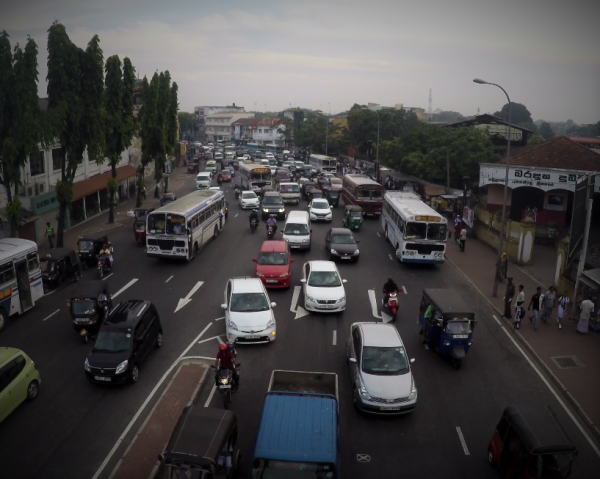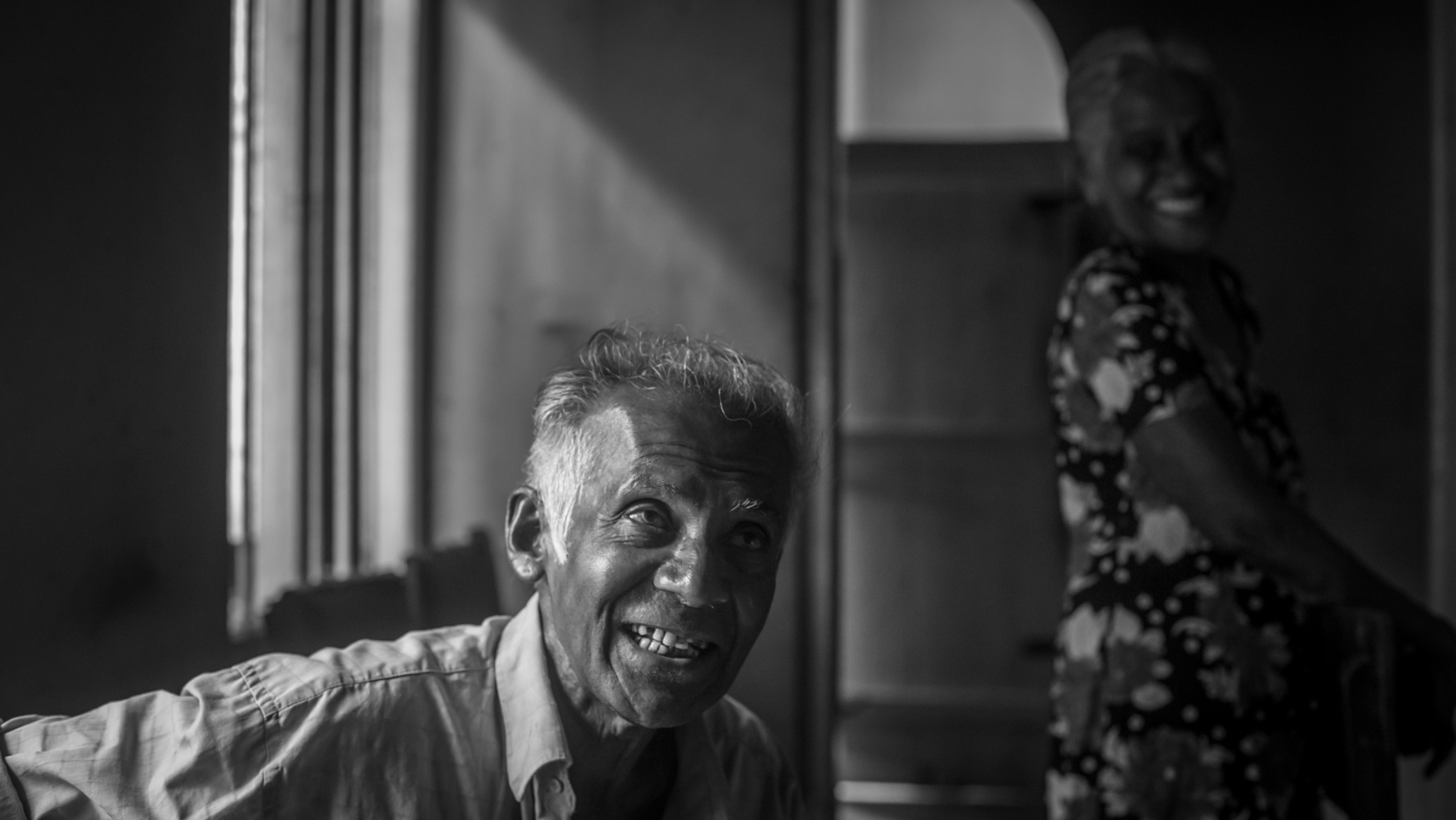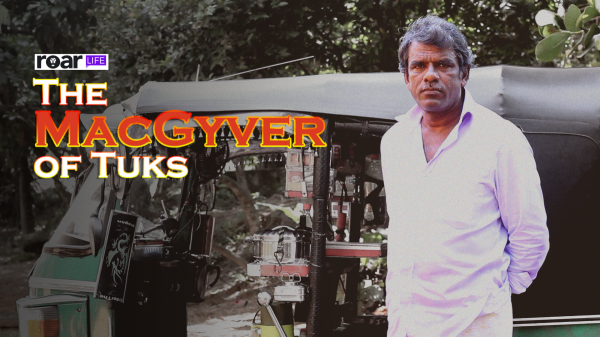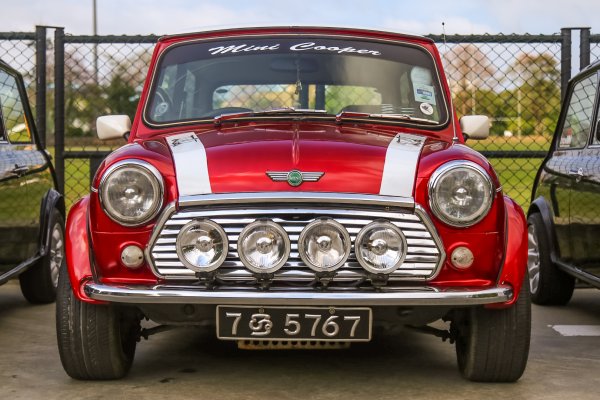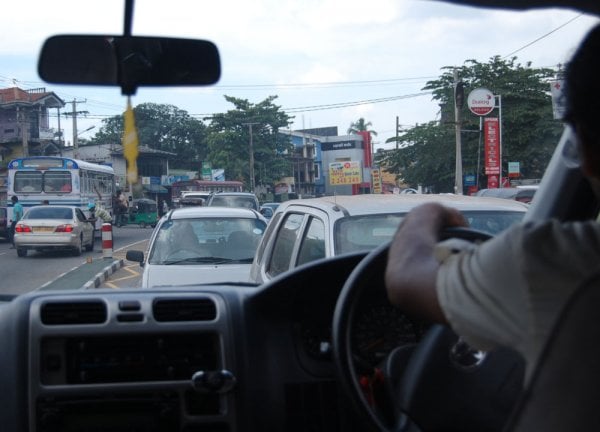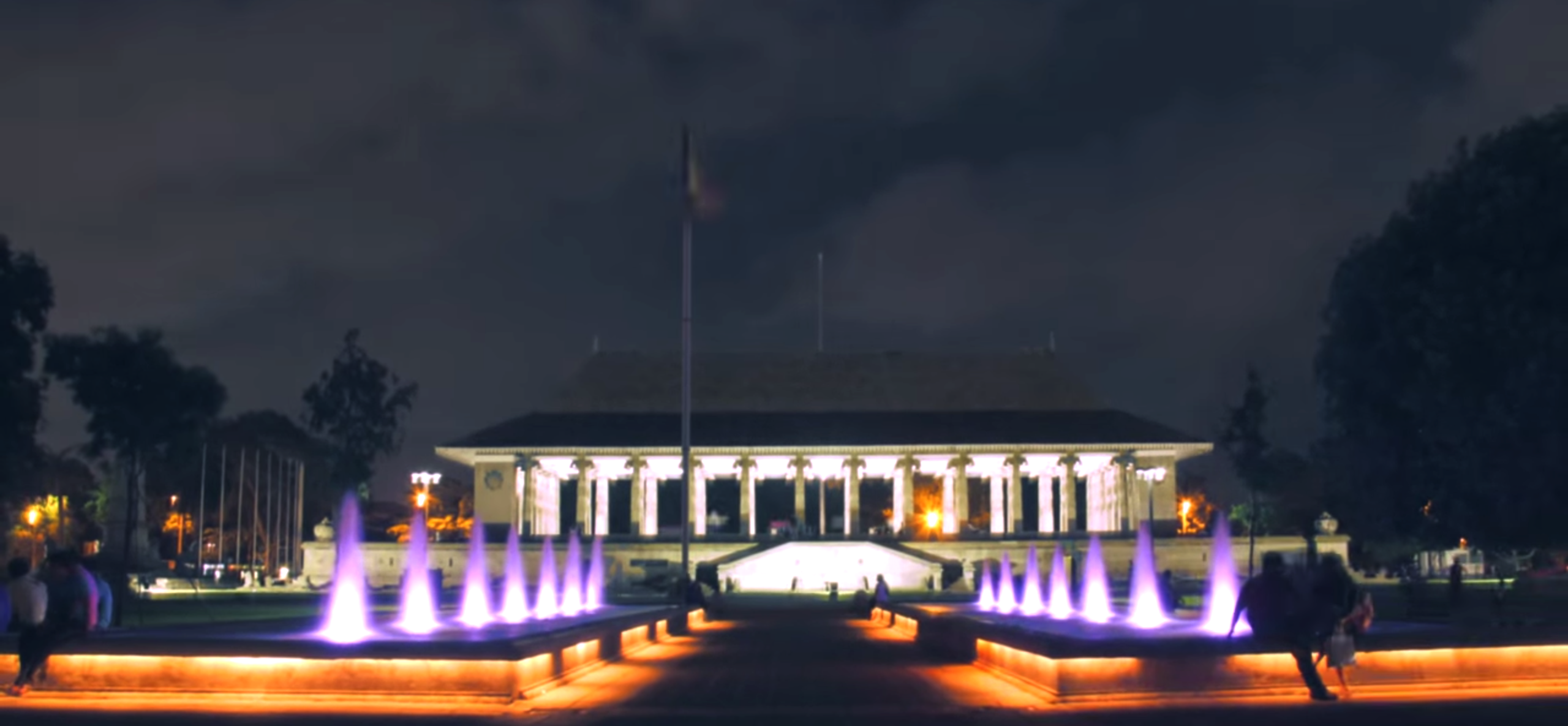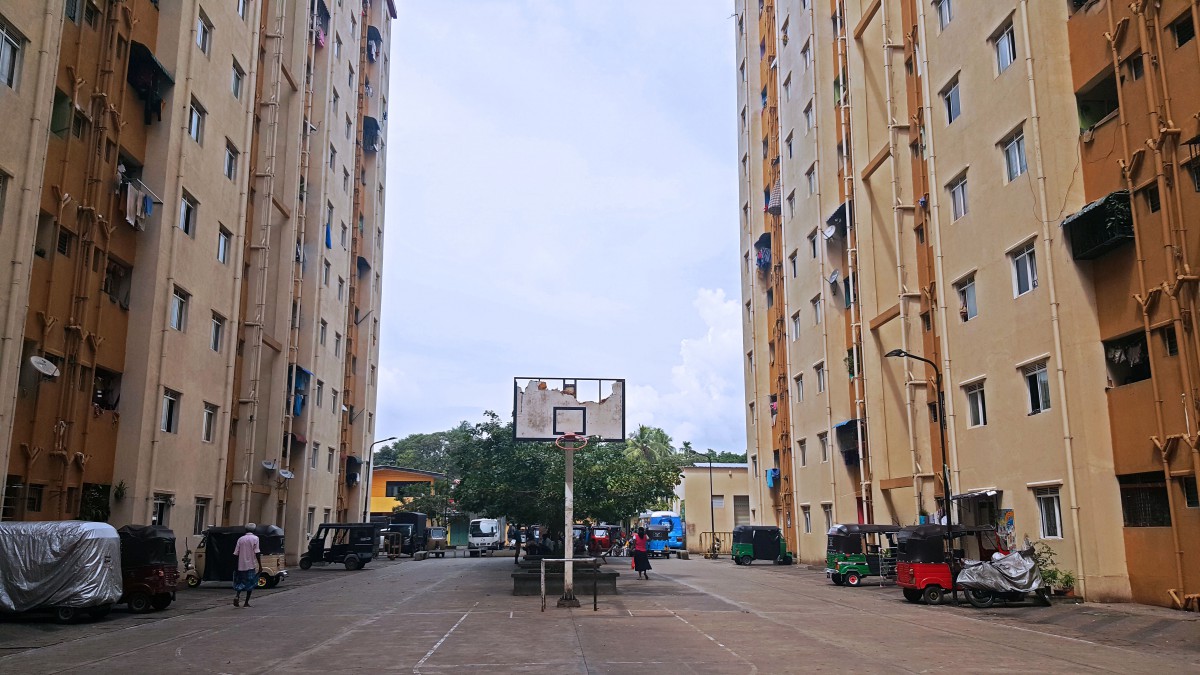
The Sahaspura Housing Scheme is a government initiated low-income housing project. Designed to be 14 floors tall, they contain 670 housing units. While providing decent housing for low-income residents—predominantly people living in the slums—is commendable, the process by which residents were forced to move out of homes they had lived throughout their lives is questionable. Moreover, each unit is approximately 350-380 square feet, making it a rather cramped affair for large families. Relocation wasn’t cheap either—new residents were expected to pay Rs. 50,000 upfront, another Rs. 50,000 after three months, and then an additional amount monthly for a 20 year period. These are in addition to other bills for water and electricity. The residents living in the apartments are from many areas across Colombo: Maligawatta, Dematagoda, Grandpass, and Aluthkade to name a few. Most of whom we spoke to told us they were resettled here when their homes were torn down for urban development projects about five years ago. While a handful of them said they were well adjusted to the area, many others, especially senior citizens, expressed dissatisfaction.
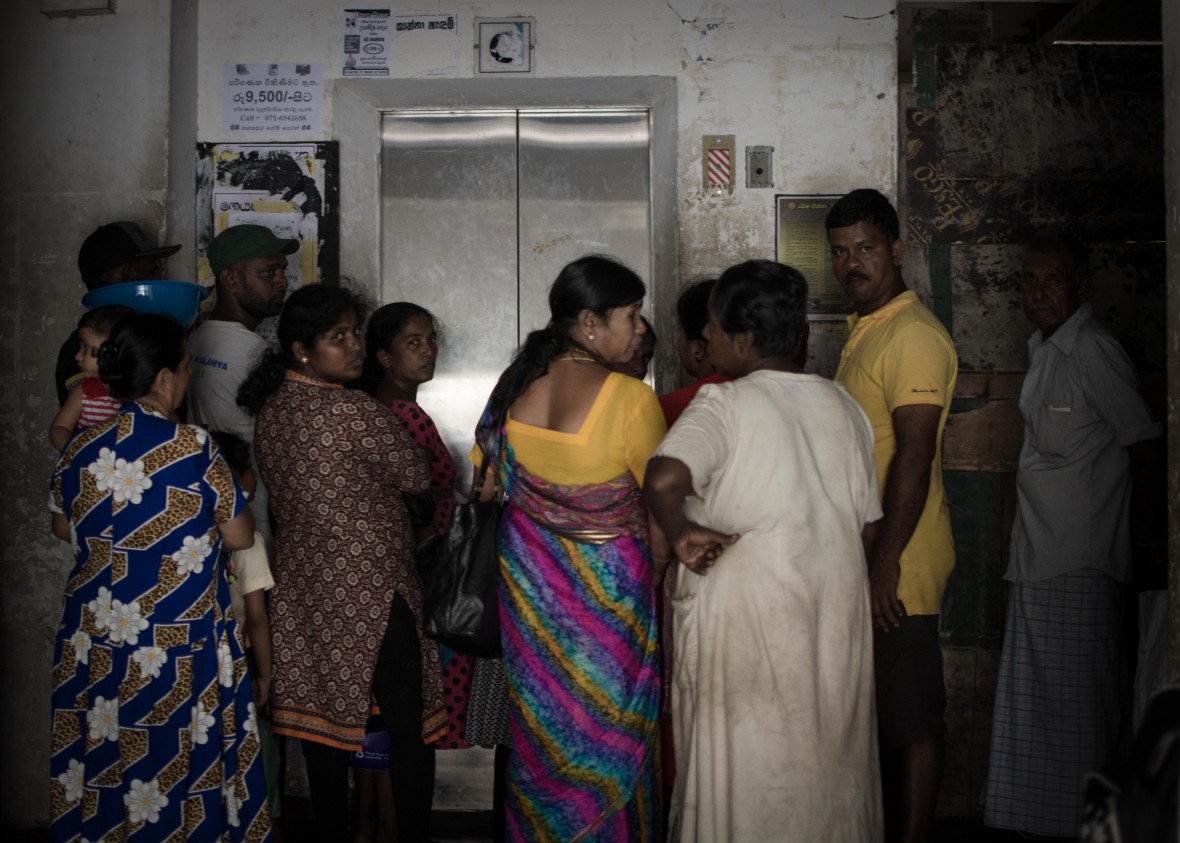
Residents wait for a very crowded lift to come down 15 floors.
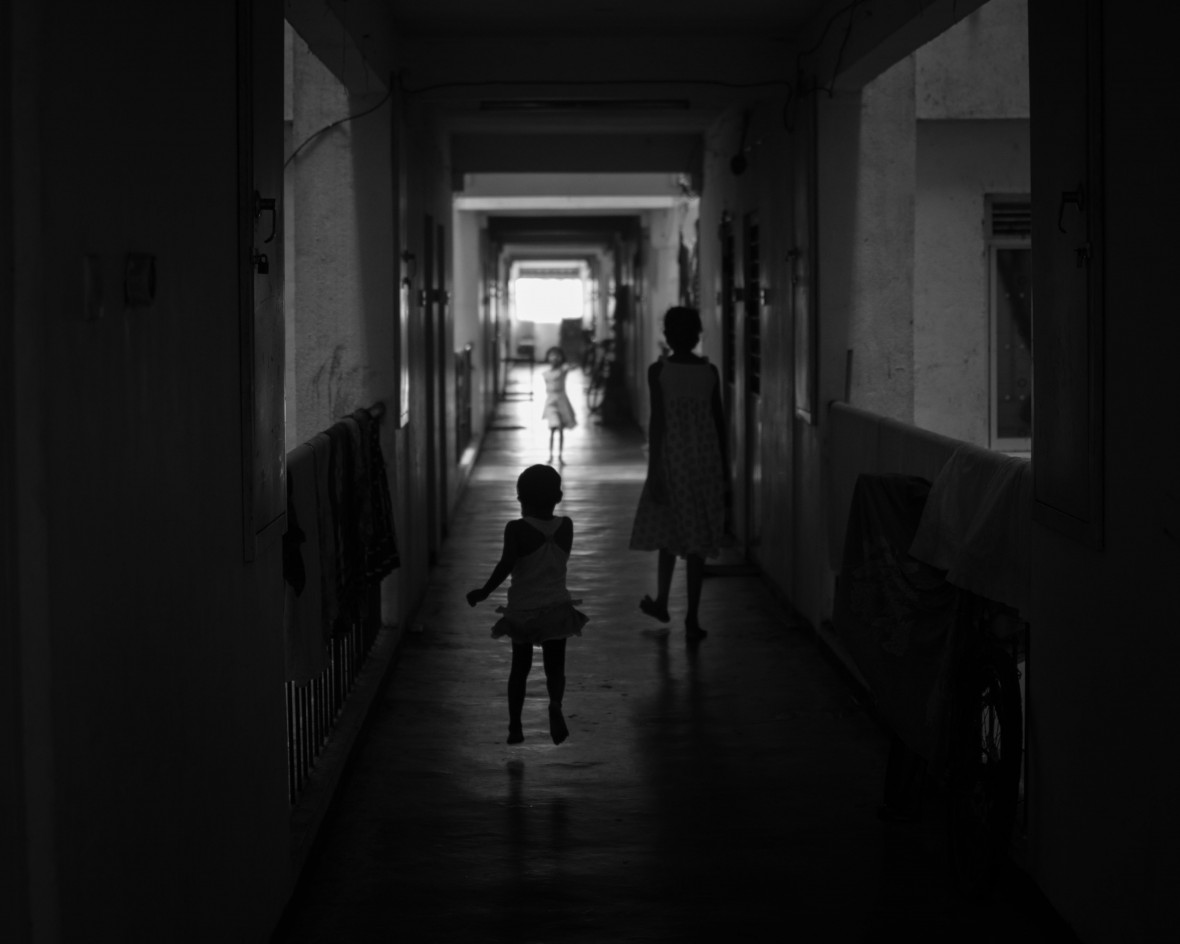
You find children playing down the hallways of almost every floor.
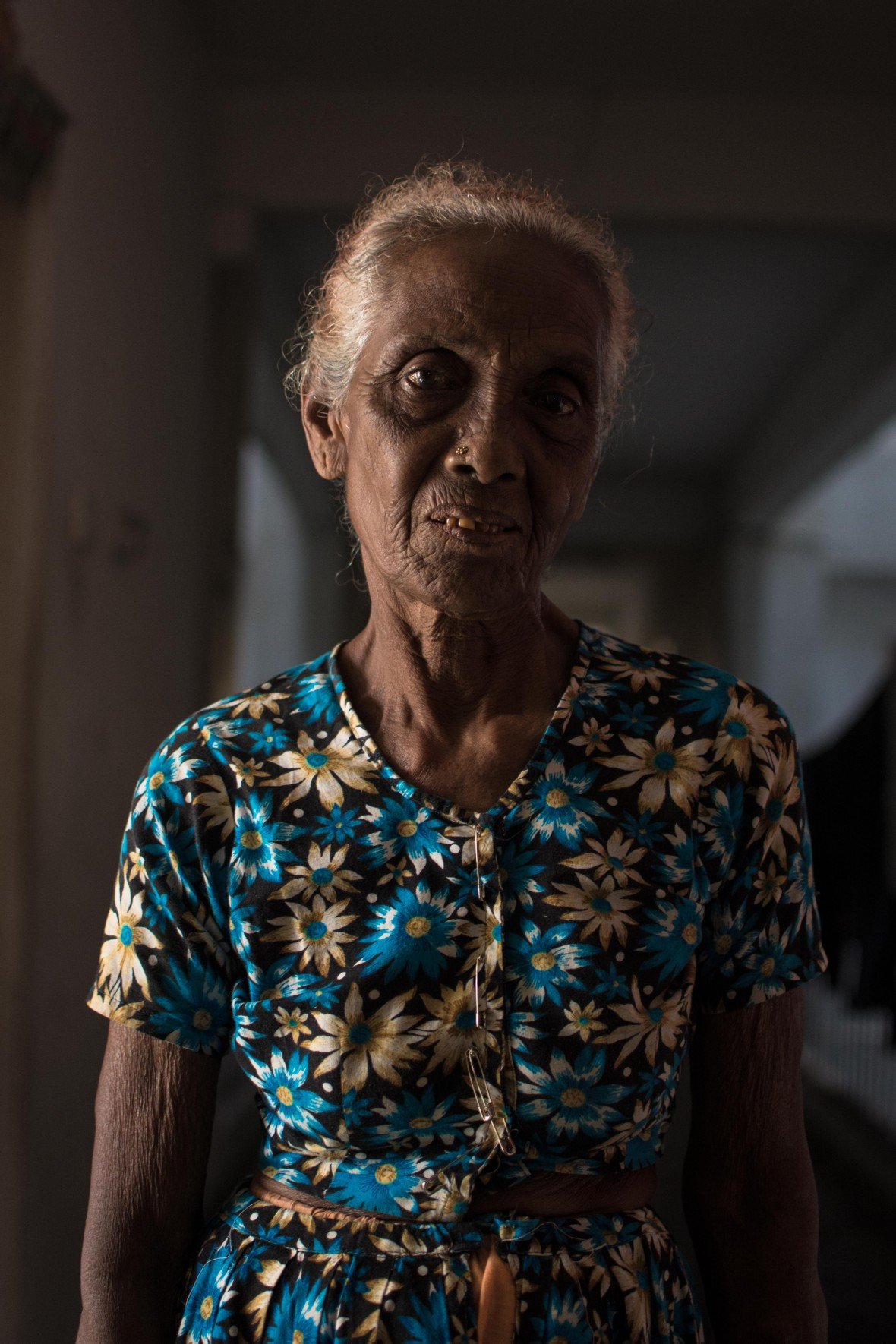
Nona Balkis, a senior citizen, misses her old life. She bemoans the lack of facilities compared to her old home in Kompanna Vidiya, and the high expenses here.
“We pay 2600/- rent per month, with utilities it comes between 5000-7000 per month. We also have to pay the garbage collectors Rs. 1000 per month. There’s a playground in the other block of apartments, but they don’t allow children from this block to play there.”
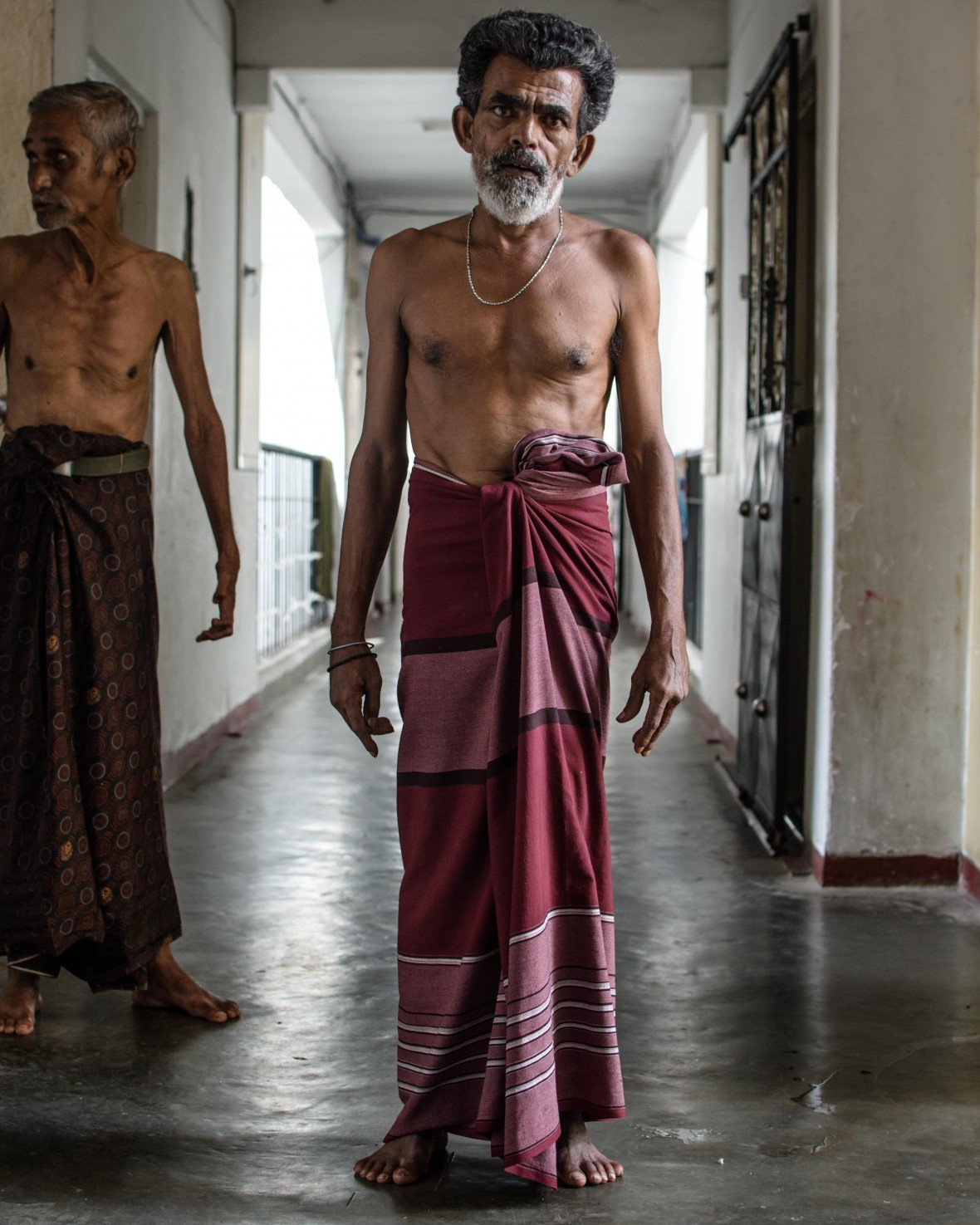
Ratneswaran, 52 years. “We used to live in Maligawatte for generations and then my father wanted me to leave the house once I got married, so I bought a land in Applewatte for Rs. 35,000 in 1981 and built a house from ground up. I worked very hard to get here, whatever money I earned from working at the garage I invested in the seetu (an informal financial savings scheme) and saved slowly, I never spent on unwanted things. I haven’t gone to work for a month now, I’m not well. I have three daughters and my brother has three sons. (He laughs). At the time everyone from the area used to make fun of us, and wanted us to exchange one daughter for a son. There were things that used to happen in Applewatte that cannot be spoken of; now we are able to live like human-beings in this place. Some people think that since I grow a beard that I’m a heroin addict, but we aren’t like that. Only if we go to work are we able to earn 1,000/- per day.
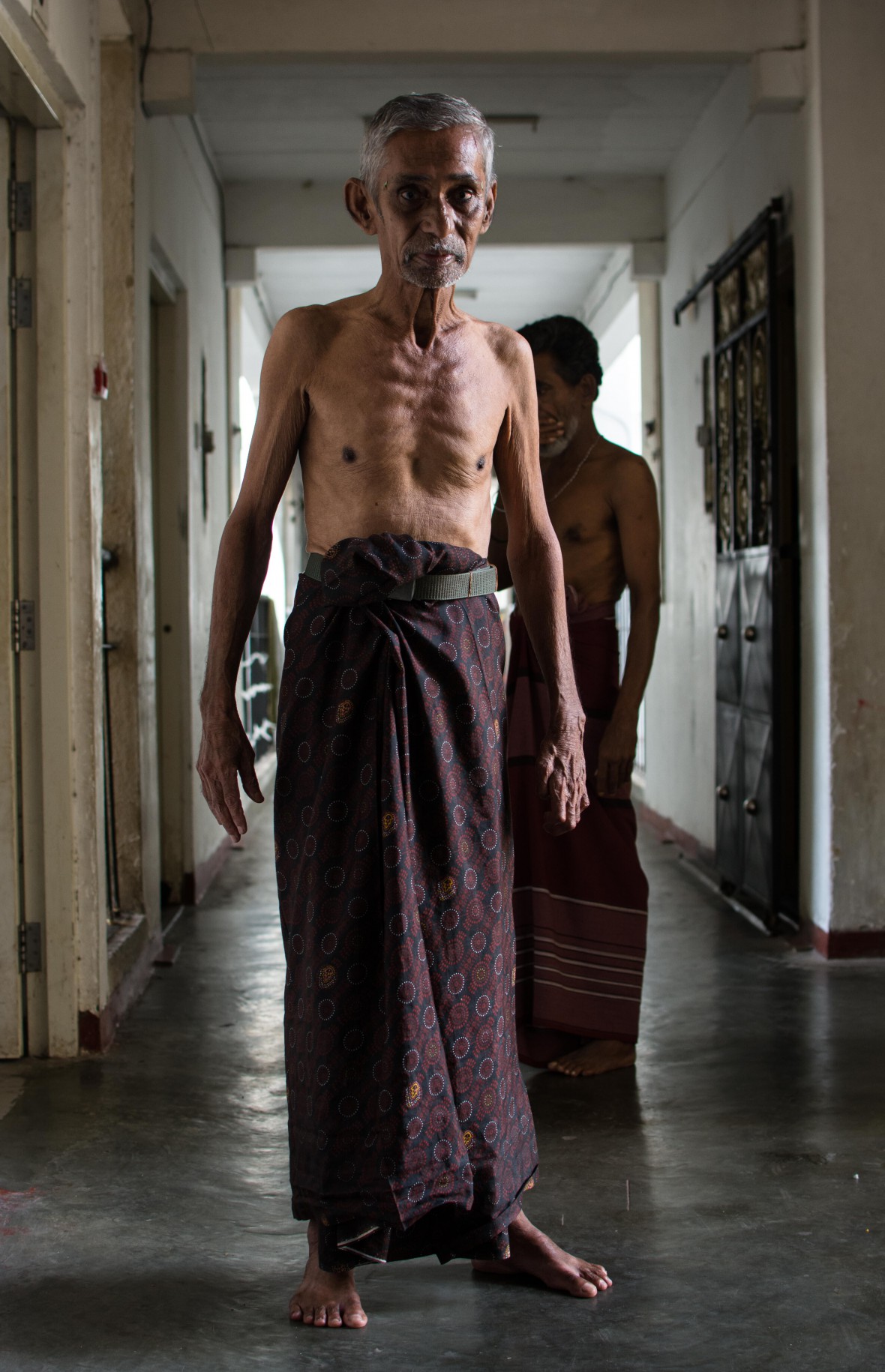
“We used to live in a Muslim neighbourhood. Mosques were just a step away, and we had plenty of halal meat shops. It was good for the children also. But now, people from all sorts of neighbourhoods are here, be they Tamil, Sinhalese, or Muslim.”
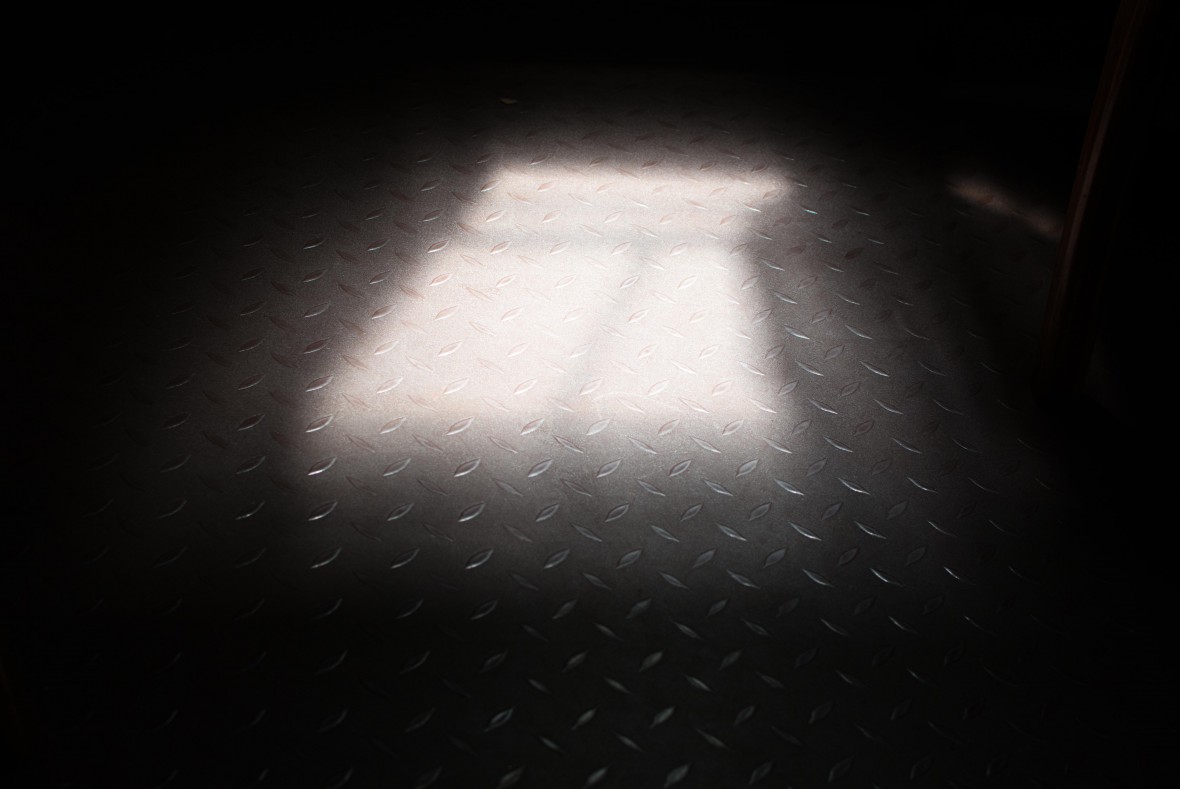
The apartment’s flooring is made of aluminum (chequer) plates like this.
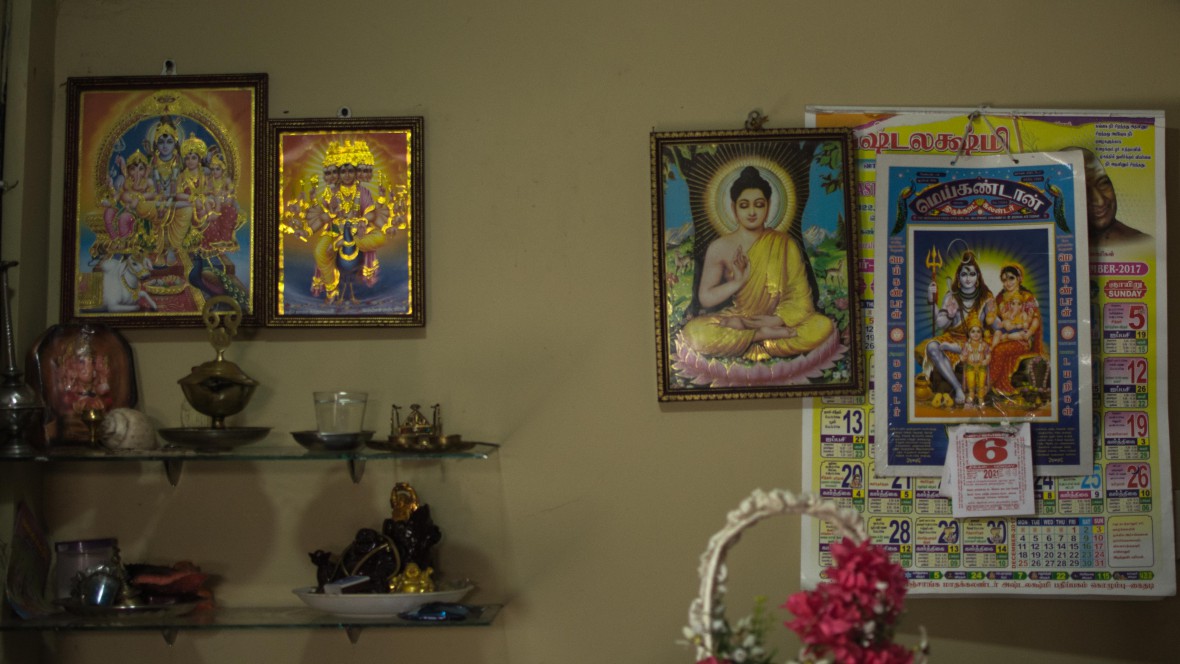
Despite the lack of space for each family, some make space for their gods. Here, a part of the apartment is dedicated for a shrine.
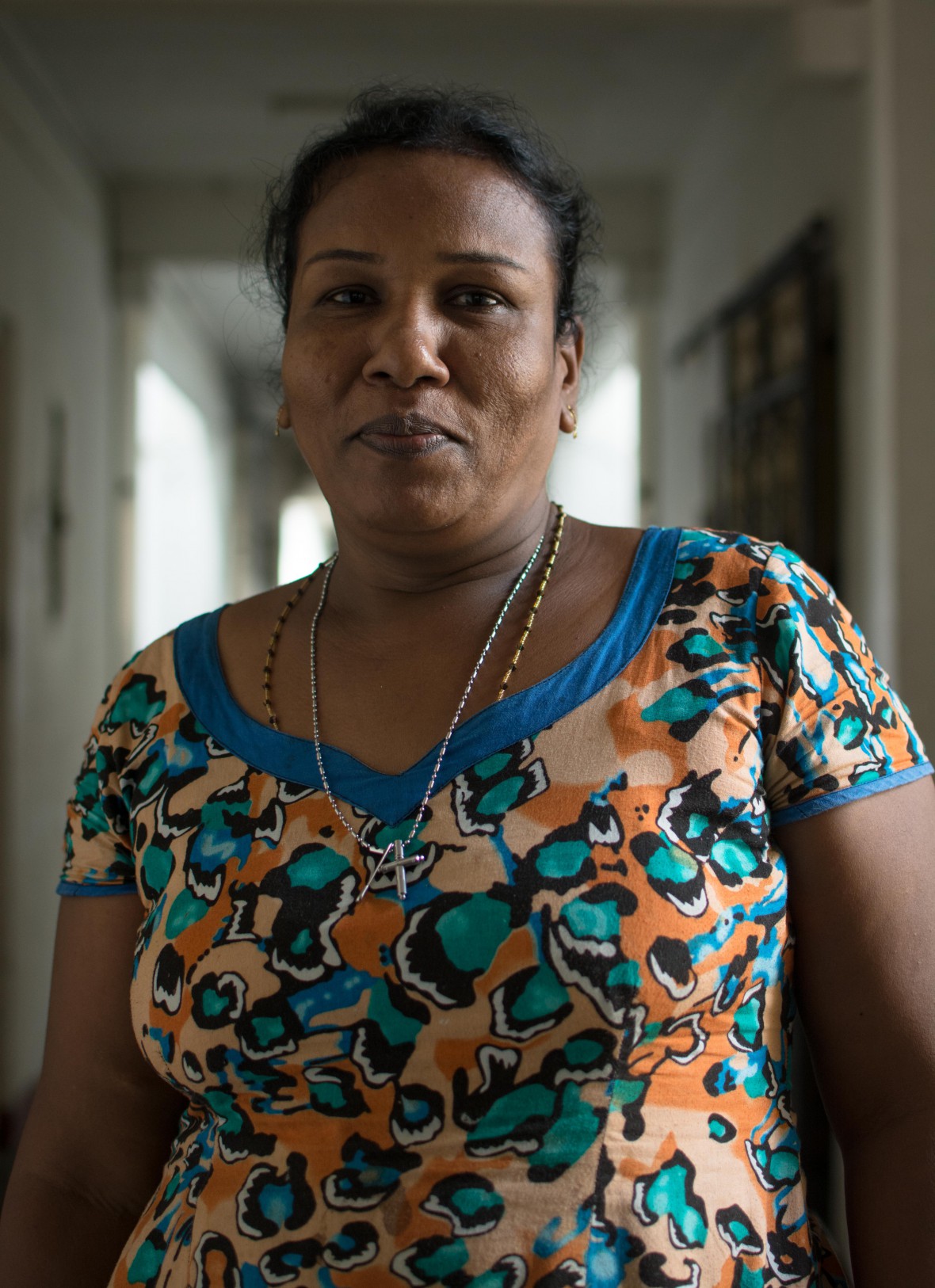
Bavani was first in Kochikade, and then in Maradana. She’s one of the few who didn’t find fault with the housing scheme. “Whether the place is good or bad depends on how you adapt to it. There actually are enough of convenience stores around, including the hospital. It’s not a bad area. It’s also important to mind our own business. If we go around gossiping with the neighbours and looking for fault, we’re just looking for trouble. In our case, we keep to ourselves and stay out of drama. The people here aren’t complete strangers either, as some of them are from our old neighbourhoods as well.”
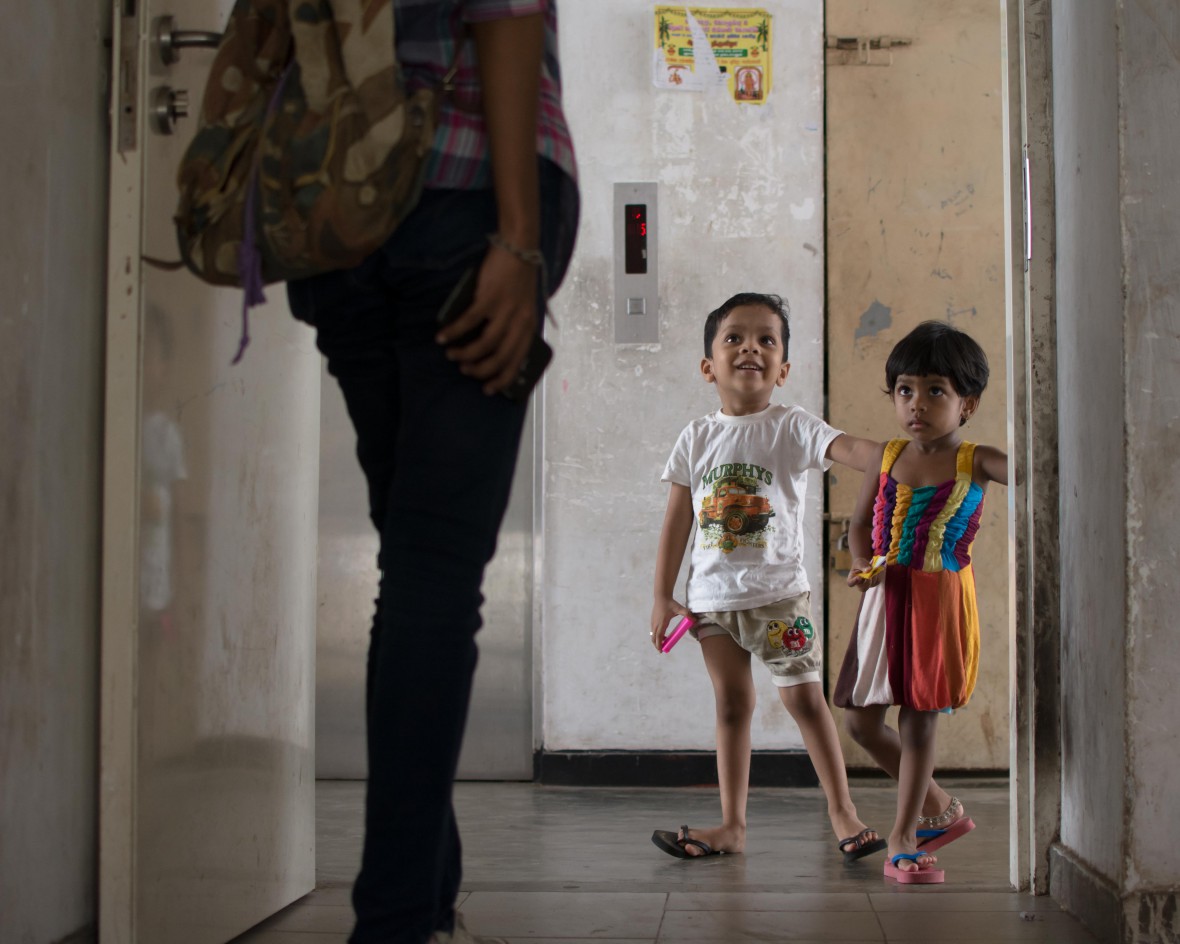
Toddlers ran through the corridors, playing tag in the afternoon.
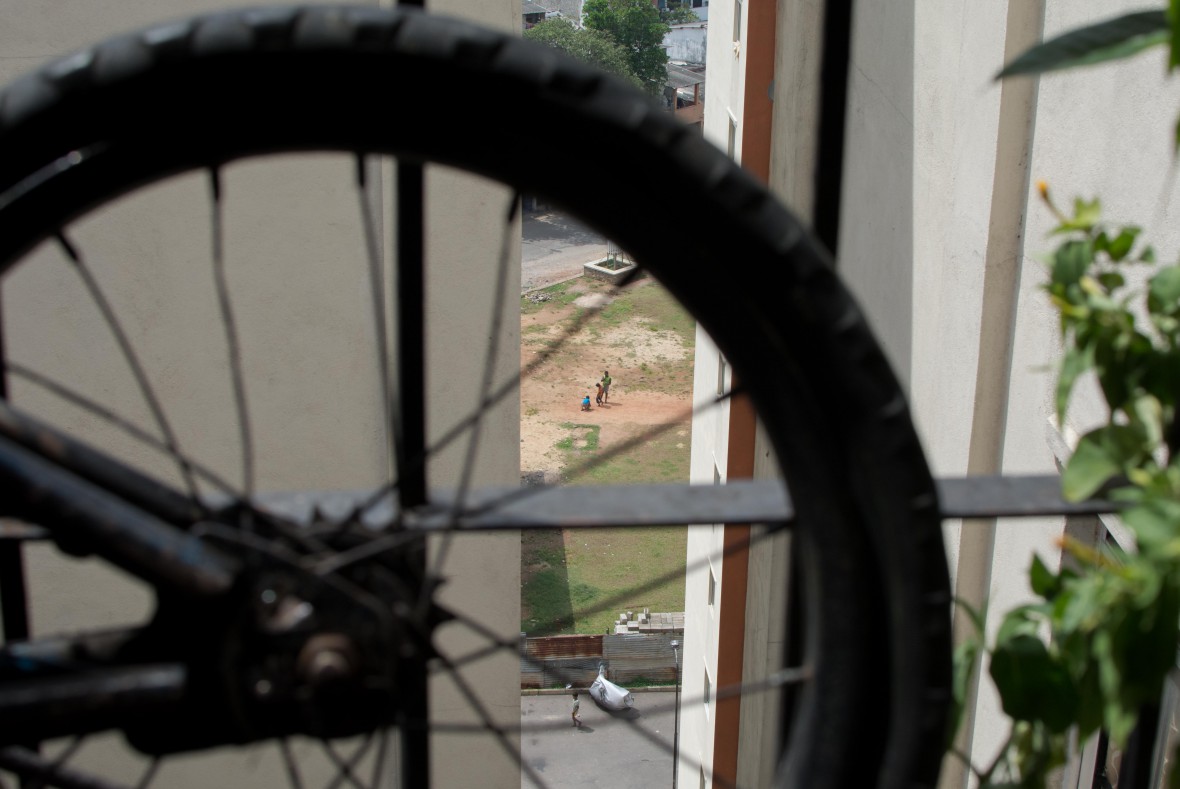
The barren land adjacent to the flats is used by boys in the area for games. Here, a group of youngsters are seen playing cricket despite the noontime heat.
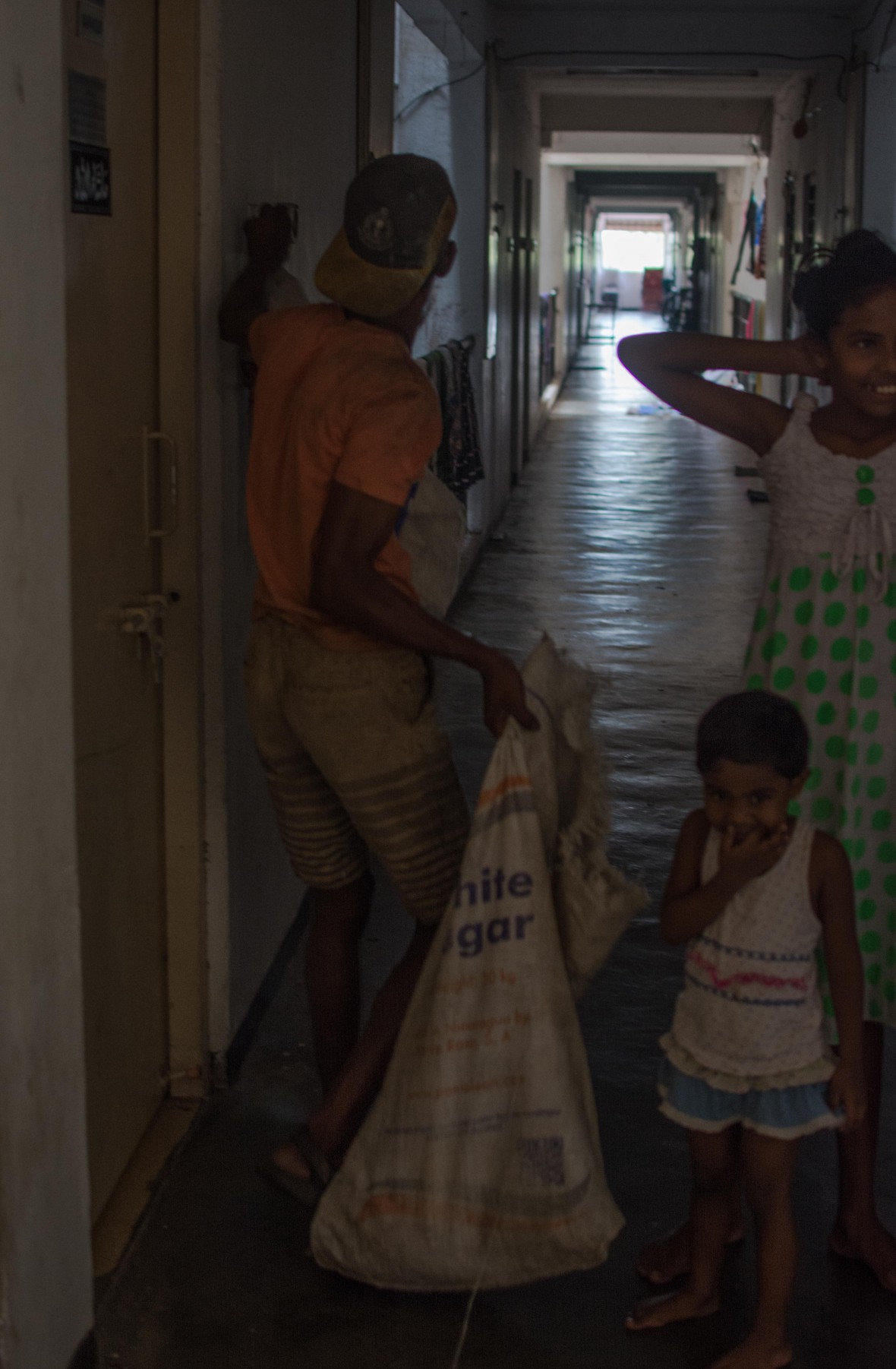
Garbage is collected by employees from the Colombo Municipal Council. Each household pays a sum of Rs. 1000 per month for this service.
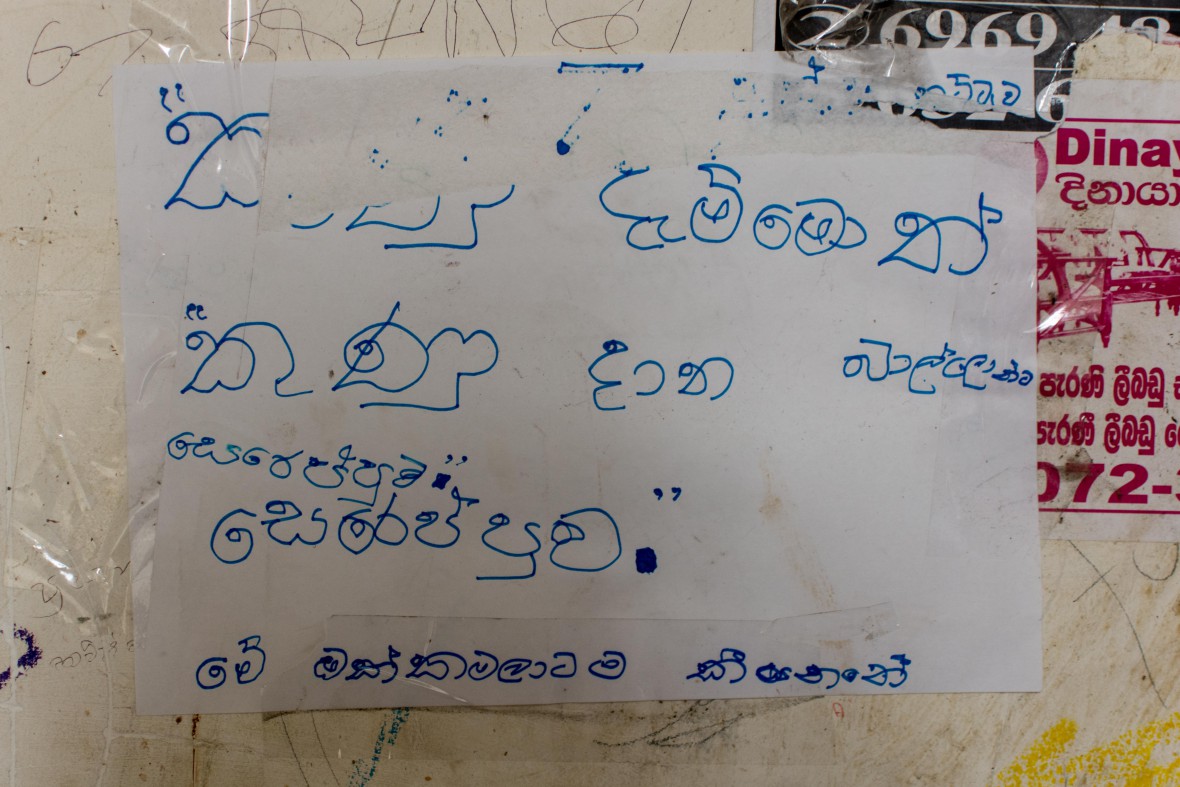
This scribbled sign stuck on the wall alongside the stairs reads “The dog who throws his litter here will get a good thrashing with slippers,” with an added emphasis on the slipper.
